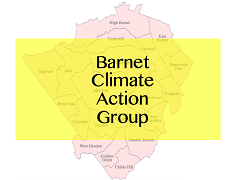Notes from Breakout Session 1 – 16th May 2021
Presentation: Waste BCAG May 21.pptx (PowerPoint 800Kb)
Notes:
A suggestion came from Julia Hines around help setting up a ‘library of things’ in East Finchley, which could be a ‘tool library’. Library of things could be set up at the local, neighbourhood level.
Attendees highlighted a series of existing projects within the community such as:
www.no2plasticsn2.com – East Finchley group which works with shops and businesses, encouraging less packaging and refillable bottles of , eg olive oil.
A Zero Waste Market taking place in Barnet on 23rd May: https://www.barnetsociety.org.uk/will-new-barnet-lead-the-way-with-borough-s-first-zero-waste-food-and-flowers-market
This led to a wider discussion about the need to share and exchange information on reducing waste, such as more information on how and what to recycle, as well as encouraging people to use local shops which are actively cutting down on packaging, especially zero waste shops.
Several contributors suggested that there needs to be an information exchange about such initiatives and campaigns, including September’s Big Green Week: https://greatbiggreenweek.com/
People also shared information about TerraCycle, who recycle crisp, sweet and biscuit wrappers: https://www.terracycle.com/en-GB/
There was also a recommendation for Olio, a recycling app: https://olioex.com/
Wendy from Incredible Edible Barnet talked about the value of teaching people to start growing some of their own food – it reduces food miles, reduces packaging, helps people engage with nature and encourages them to value the time and energy it takes to produce what they eat, thereby often influencing them to throw away less.
It also improves our food security. More food should be sourced locally, it is better, fresher and uses less transportation. Returning to theme of educating and informing people – it was suggested that there could be more information on how to start their own compost heaps.
There was a discussion about the need to put pressure on supermarkets, as most people buy the majority of the things they consume from them. Points raised here included:
- Write them letters. Tell them we want an end to single use plastics, unnecessary wrapping. Why are some products cheaper when wrapped in plastic than alternatives that are sold loose?
- Ask them to introduce stations which dispense loose items into brought-in reusable containers – as some small shops already do.
- More recycling points.
- Get them to agree to reduce waste of such items as bread.
- Start a campaign, collect signatures to demand the supermarkets make surpluses available to the local community and ask them to place this in community fridges.
There was also a need to put pressure on manufacturers to make items that can have be more durable and be used for longer use, and to penalise them for short life items, such as washing machines that only work for a few years. Making them pay for the cost of disposal of white goods and electricals was also supported.
The use of and promotion of repair shops was also supported. People highlighted the Restart Project which has taught people how to make their own repairs by running repairing workshops
The group was also supportive of putting pressure on the Council to reintroduce a food waste collection. Alan Schneiderman says there has not been a commitment to bring it back, the council leaders say there has been ‘low take-up’ but a third of residents were using the service when it was scrapped – which itself cost the council money in terms of having to collect and incinerate the additional waste.
People agreed that we need to think about what we buy.
Notes and suggestions from the Jamboard:

Click image to see the same image on a page by itself, which may be easier to zoom in to
5 Actions for us:
We need to share information about the need to reduce waste, the existence of local zero waste shops and markets, the impact that changing your diet can have, and the projects that already exist across Barnet that are taking action around reducing waste.
We need to take action ourselves, by setting up community ‘libraries of things’, setting up local projects on food waste and by consuming less stuff.
We need to support our local shops that are setting a good example, by using repair shops and zero waste stores whenever we can.
We need to grow our own by encouraging gardening, composting and growing own fruit vegetables. We also need to set up collective community gardens and allotments.
We need to say no to single use plastics – especially in shops and supermarkets.
3 Actions for others:
Barnet Council needs to take action to support the reduction of waste generated by residents and to increase the ease and rate of recycling through better services and improved information. Barnet Council should reintroduce the collection of food waste as soon as it can.
Manufacturers and producers need to make things that will last longer, are repairable, and take responsibility for the disposal of items when they reach the end of their useful life.
Supermarkets need to drastically reduce the amount of waste they generate and adopt zero waste practices, by ending the use of single use plastics, reducing packaging, introducing refill stations, finding uses for items that need to be thrown away (such as through community fridges).
